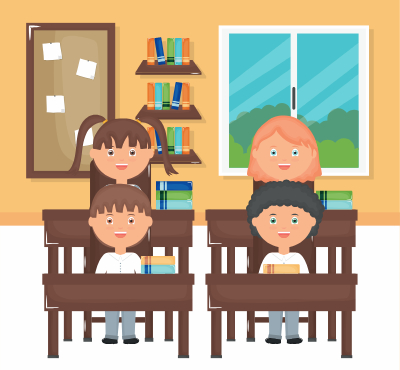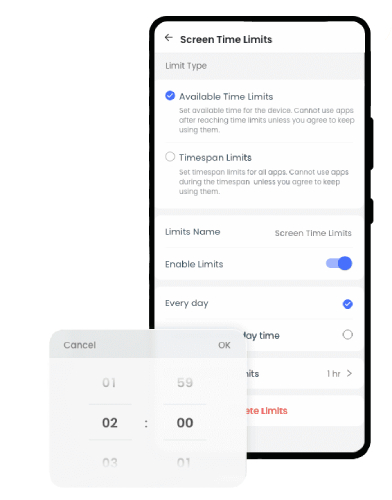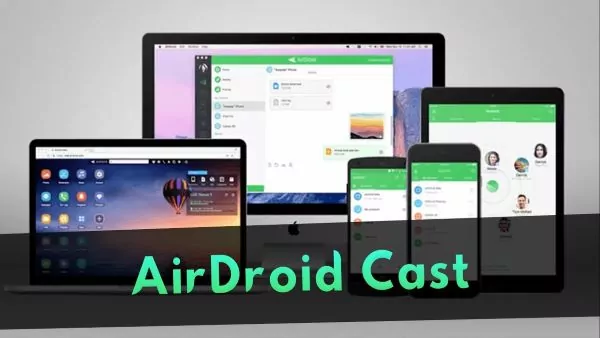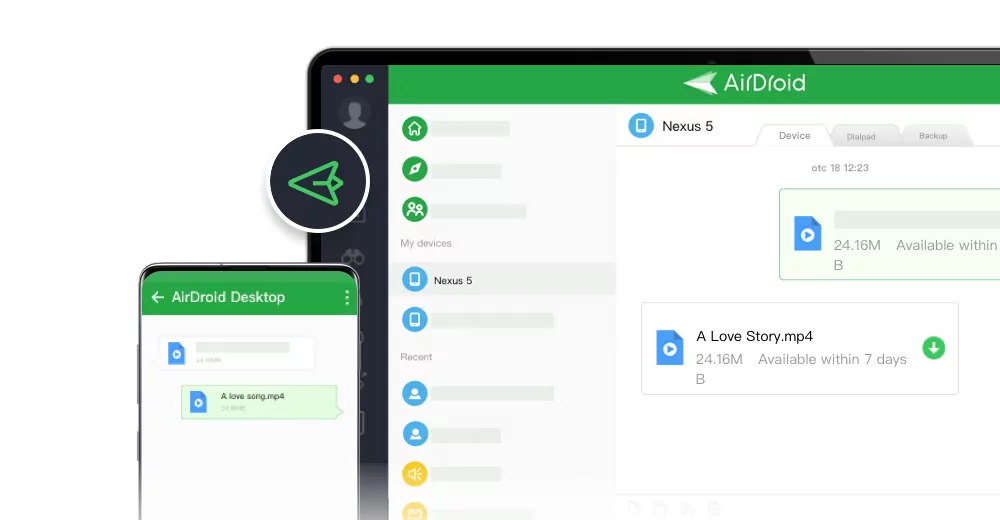How to Help a Child Focus in the Classroom?
Every kid has a different personality, and so is their attention span. However, full focus in the classroom is essential for their success. That's because if they aren't attentive and engaged in class, they won't be able to learn properly, which can hamper their academic experience. It's a known fact that modern classrooms are extremely dynamic, but they can be distracting as well.

As parents or teachers, we need to understand our role in nurturing the young minds of our kids. It is important for us to help them concentrate, and we are sharing a few tips on how to help a child focus in the classroom. In fact, we are also sharing the common reasons that impact their learning by reducing focus.
Understanding the Factors Affecting Focus
If you want to help your kid in the class, you need to understand that there are multiple factors that hamper their concentration and focus. These factors include biological, emotional, and environmental factors, such as;
1Brain Development
Kids' brain development plays an essential role in their focus. That's because, with age, the brain matures, which helps increase the attention span. You have to understand these developmental stages because it helps determine the most suitable approach that complements the cognitive skills of the little ones.
2Nutrition & Sleep
Proper nutrition and sufficient sleep are essential to ensure proper cognitive function. That's because when the kid is properly fed and has had enough sleep, they will be more focused and attentive in class. That's the reason everyone recommends having a bedtime routine for their kids.
3Classroom Setup
Many people don't realize this, but in some cases, the classroom environment can impact the focus. You have to ensure a clutter-free and well-organized classroom because it helps reduce distractions. That's because the fewer the distractions, the higher the focus.
4Stress & Anxiety
Emotional well-being is connected to focus. This is because high levels of stress or anxiety can hinder their attention and learning. Teachers and parents should be able to understand the signs of stress in children and provide emotional support and coping mechanisms.
5Interest or Motivation
A child's level of interest in a particular subject can have an impact on their focus. When children are engaged and motivated, they are more likely to pay attention and engage in learning. For this reason, it's better to use interactive and engaging teaching methods to motivate kids.
Strategies for Parents and Caregivers
Not every kid knows how to stay focused in class, which is why they might need your extra help. As parents or caregivers, you can use different techniques, such as child concentration exercises, to make sure they are on the right path. So, let's check out a few strategies that you can try.
1Creating a Routine
Knowing how to help kids focus is important, but remember that it's not possible unless you create a proper routine for them. This is why you must have a proper sleeping and eating routine for them. To begin with, you must ensure that the little one is getting enough sleep because a well-slept kid performs better in class.
Secondly, your kid needs healthy meals to power their brain. You've to provide nutritious and balanced meals that help fuel the brain and body. In addition, you must set the meal times so their focus and energy levels are aligned.
2Reduce the Screen Time
Helping a child focus in the classroom isn't possible unless you pay attention to what they are doing at home. For this reason, you've to ensure that you are reducing the screen time. There must be screen time limits in place so they aren't distracted by the digital world, such as social media and games.
On the other hand, you should encourage them to do activities that engage their body and mind. For instance, you can suggest them for arts and crafts, reading, and educational games.
3Encourage Physical Activities
Physical activity is important to help them release excessive energy and improve their focus. For this reason, you can make them opt for dancing or sports, whatever they are interested in. In addition to this, make sure that your kids are spending time with nature because it helps improve their focus by providing a calming effect.
4Communicate
It's common for parents to just impose their decisions on kids without having a conversation with them. However, it's not the right approach because kids become resentful. So, make sure you have open communication about their school and classroom. You can ask them about their day and listen if they are ranting about something. This will help them understand that they can come to you for help.
5Provide Emotional Support
It doesn't matter how old your kid is; they will always need the emotional support of their parents. In fact, it can help them with stress and anxiety, which might be interfering with their focus. You can also help them with coping strategies, such as mindfulness techniques and deep breathing exercises.
Extra Tip: How to Limit Your Child's Screen Time
Parents are well aware that in today's world, our lives are deeply intertwined with electronic devices. Children, though, often lack the self-control to regulate their screen time effectively and can end up spending excessive hours engrossed in these devices.
While screen time limit is available on iPhones and Android phones, and even certain apps like TikTok offer built-in screen time limits, these basic functions might not be flexible enough to fully manage a child's device use. For parents seeking a more flexible and comprehensive solution to regulate screen time, we recommend using a third-party parental control app, AirDroid Parental Control.

With AirDroid Parental Control, parents can:
- Schedule the timespan of the day.
- Establish daily usage limits for specific apps or the overall Android device.
- Control individual app accessibility, even opting to block certain apps completely by setting their use time to zero.
- Block all apps or restrict newly installed ones.
Additionally, AirDroid Parental Control offers a family locator feature that allows parents to pinpoint their children's location at any time and set geofences. The remote access feature lets parents check their children's surroundings, ensuring their safety at all times.
Strategies for Teachers
When it comes down to improving the focus in the classroom, the teachers have to be present as well. That's because they are responsible for the environment in the classroom, and following the below-mentioned tips can help such as;
1Seating Arrangement
Proper and thoughtful seating arrangements can have a great influence on the overall dynamics of the classroom. For this reason, it's recommended to ensure a flexible arrangement that caters to a variety of teaching styles and activities. If your classroom has more activity-based learning, you can opt for the circular setup because it's more interactive and keeps the kids in the loop.
2Interactive Lessons
Engaging students in interactive lessons is key to active participation. Teachers can incorporate digital content, group discussions, debates, and hands-on activities to make lessons more dynamic. In addition, you should encourage students to ask questions, express opinions, and communicate with other kids. Interactive learning not only improves understanding but also makes the classroom a more vibrant and enjoyable place.
3Varied Activities
Diversity in teaching methods keeps students engaged and makes sure kids with different learning methods can get help. We recommend incorporating a variety of activities such as games, simulations, role plays, and real-life applications. It helps prevent monotony and ensures that all students have the opportunity to engage in the classroom. This also helps build creativity and problem-solving skills.
4Scheduled Breaks
Incorporating scheduled breaks into the daily routine is crucial for maintaining students' focus and well-being. Short, frequent breaks allow students to recharge, refocus, and release pent-up energy. Teachers should ensure these breaks are structured and supervised to prevent disruptions while giving students the opportunity to relax and socialize.
Individualized Strategies
As parents, we need to understand that every kid is different, so you might have to take a different approach. Every kid has their own learning style, challenges, and strengths. So, you need to identify these differences and appreciate them. You've to keep an eye on their areas of interest and strengths so you can leverage them.
Secondly, it's recommended that you opt for IEPs, known as Individualized Education Plans. They are designed according to the special goals and challenges of students, so their learning isn't impacted. For these learning plans, you've to connect with teachers because they are responsible for creating these plans and assessing the plan and its effects on students.
The Bottom Line
Kids often struggle in class, and it's not something uncommon. In most cases, parents get overwhelmed and start scolding their kids. However, scolding doesn't work, and in fact, it can make kids lose confidence. That's the reason we shared different techniques for parents to help their kids. On top of everything, you've to involve the teachers and school authorities because they play a significant role in improving the learning environment.






Leave a Reply.